Budget 2021: As it happened

Live updates and links to all our coverage, reactions and analyses as the Chancellor of the Exchequer delivers the government’s Budget later today – at 12.30pm. Please also visit our dedicated Budget 2021 Hub.
Wrap-up of the main Budget announcements
Here’s a wrap-up of the main announcements made by the chancellor in his spring Budget:
- Corporation tax to hike to 25 per cent from 2023
- New “Super Deduction” to boost investment
- Income tax freeze to hit high earners
- Sunak launches new Covid-19 business loan scheme
- Self-employed grants extended to include 600,000 “excluded” individuals
- Furlough scheme extended until September
- Business rates holiday and VAT cut extended
- Stamp duty holiday extended
16.25 That’s all folks!
Thanks for tuning in for our live blog of Rishi Sunak’s 2021 Budget as it happened. Make sure to head over to our website for the latest updates, reactions, analysis and more.
16.07 Aviation firms accuse Sunak of ignoring sector
The aviation industry has reacted furiously to today’s Budget, accusing Chancellor Rishi Sunak of ignoring the sector, which has been battered by the pandemic.
Aviation firms had been lobbying hard for sector-specific relief for the industry, which has been in a tailspin for an entire year due to wide-ranging travel restrictions.
Although the sector will benefit from the extension of the furlough scheme until the end of September, airlines had been hoping for a waiver from air passenger duty for at least a year.
Trade bodies such as pilots union Balpa and the Airport Operators’ Association (AOA) said that the government was “blind” to their pain.
AOA boss Karen Dee said: “Aviation has been the hardest-hit sector in the pandemic, but the Budget is blind to the impact of the near-complete shutdown of international travel.
15.59 The City welcomes overhaul of stock market listings
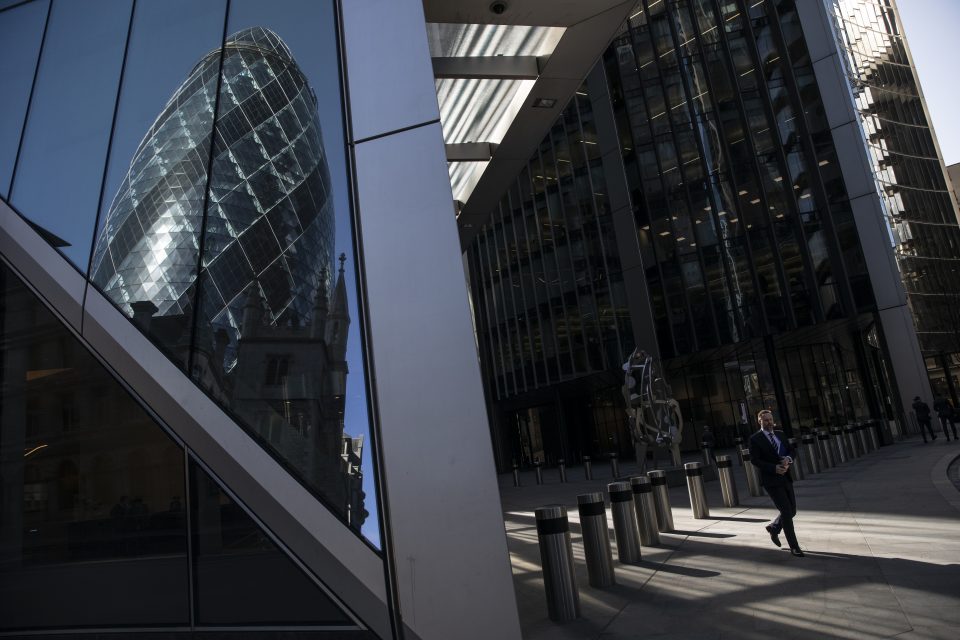
The US phenomenon of Spac listings could soon make its way to the City after a government-backed report called for widespread reform in the stock market.
Lord Jonathan Hill’s report into London’s listing requirements called for regulators to allow blank-cheque vehicles to list in the capital as well as to ease other listing restrictions. It has already been welcomed by the government and regulator alike and the Financial Conduct Authority (FCA) will soon start consulting on the proposals.
In his Budget speech today Rishi Sunak welcomed the review saying it “more than delivered” on proposing “bold ideas” on how to increase London’s competitiveness.
15.30 UK Music warns ‘clock is ticking’ to save summer festivals
UK Music welcomed the extension of self-employment grants and support in Rishi Sunak’s Budget, saying they would provide a lifeline for musicians who have seen work dry up throughout the pandemic.
Sunak confirmed a further £408m in emergency support for museums, theatres and galleries as they prepare to reopen in the coming months. As part of the funding package, an additional £300m will be pumped into the existing £1.57bn Culture Recovery Fund.
But UK Music chief executive Jamie Njoku-Goodwin warned that “the clock is ticking when it comes to staging live music events this summer”. He urged the chancellor to introduce a government-backed insurance scheme to ensure events companies will not be left in the red if Covid causes further restrictions over the summer season.
Reading and Leeds last week announced they will go ahead with the twin events this summer, though Glastonbury ticket holders will have to wait until at least 2022 until they can return.
15.17 Sunak splits politicians
Rishi Sunak’s Budget announcements have split MPs across the board, with some on the left giving his policy changes the seal of approval, and others claiming they do not go far enough.
Frank Field, former Labour MP for Birkenhead, said the chancellor’s Budget was the best he’d seen in his 42 years in politics.
“To be successful in politics, you have to ride two political horses simultaneously. Rishi has done a budget for the hour and made the possibility of long-term prosperity to fight the next election,” he tweeted.
15.05 Tech sector ‘delighted’ with Budget spending plans
The UK’s thriving tech sector has hailed Rishi Sunak’s spending plans in the Budget today, saying the chancellor was “backing tech in a big way”.
Announcing the Budget this afternoon, Sunak unveiled a raft of new measures aimed at boosting both startups and established tech firms.
The government unveiled visa reforms designed to attract top talent, including a new unsponsored points-based visa for science, research and tech workers, as well as an expansion of the existing visa programme for scale-ups and entrepreneurs.
14.57 FTSE 100 Pares gains as investors split on Sunak’s Budget
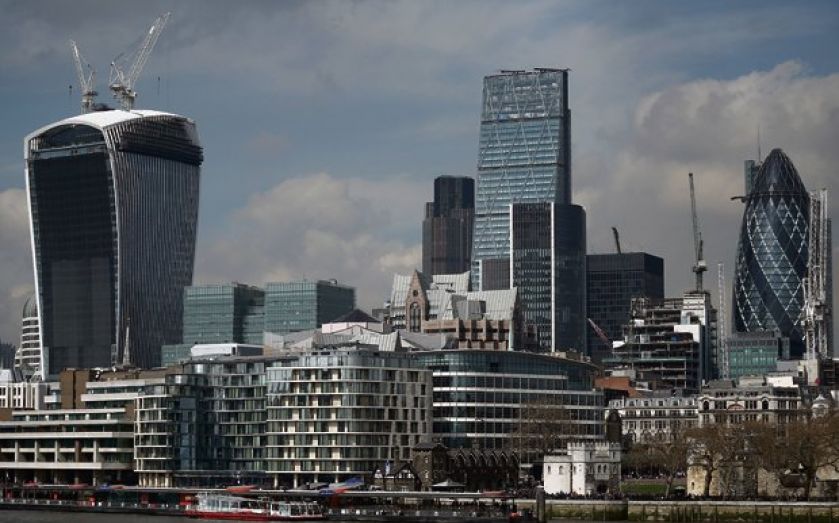
The FTSE 100 pared some of its gains after today’s Budget, as investors reacted to a combination of further business support and future tax hikes.
Having been up 1.2 per cent by the mid-morning, London’s blue chip bourse fell back to 6,639 points, up 0.4 per cent.
Despite a raft of new measures designed to keep the economy going until the end of the pandemic, including an extension to the furlough scheme, Sunak pledged to raise the rate of corporation tax from 19 to 25 per cent for the biggest companies from 2023.
14.50 Corporation tax rise ‘sends a worrying signal’, says CBI
The Confederation of British Industry (CBI) welcomed several announcements made in Rishi Sunak’s Budget, in particular the new “super deduction” which will allow firms to cut their tax bills by 25p for every £1 they invest in new equipment.
However, it had quite the opposite view on the looming corporation tax hike from 19 per cent to 25 per cent.
Tony Danker, director general of the CBI, said: “Moving corporation tax to 25 per cent in one leap will cause a sharp intake of breath for many businesses and sends a worrying signal to those planning to invest in the UK. The government must now have a laser-like focus on the UK’s competitive position in the round, including fundamental reform of the unfair business rates system.
“The UK must remain attractive for every type of business, from the innovation, high-growth UK homegrown firm to the global firms investing in the UK.”
Read about the corporation tax hike here
14.36 Property sector welcomes stamp duty holiday

Developers and property industry experts have welcomed the Chancellor’s extension of the stamp duty holiday but urged the government to fully reform the tax in the future.
Rishi Sunak this afternoon confirmed that the higher stamp duty threshold of £500,000 will remain in place until 30 June — an extension of the original 30 March deadline.
Property platform Zoopla estimated that the extension to June means a further 234,000 buyers who have already agreed a sale will save an estimated £987m on stamp duty.
Rightmove property expert Tim Bannister said the extension will be a “huge relief for those people who have been going through the sales process since last year and were always expecting to make use of the stamp duty savings”.
However, Matthew Pratt, the chief executive of developer Redrow called for “a whole reform” of stamp duty.
14.10 ‘Tax hikes will take us back to the 1960s’, says OBR
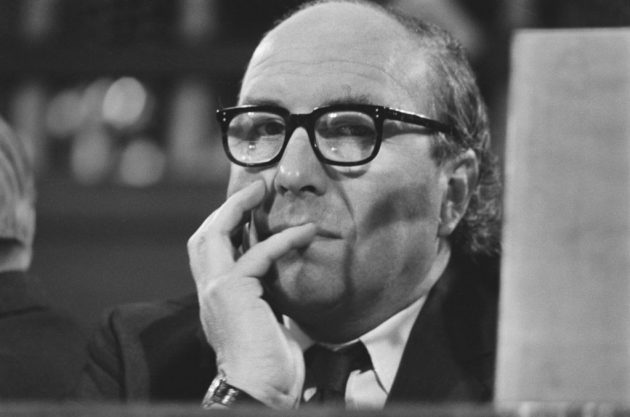
Tax hikes announced in the Budget will increase the UK tax burden to the highest level since Roy Jenkins was chancellor in the late 1960s, according to the Office for Budget Responsibility (OBR).
In its latest set of economic forecasts after Rishi Sunak’s speech, the fiscal watchdog said the tax burden will rise from 34 per cent to 35 per cent of UK gross domestic product (GDP) in 2025-26.
The OBR said more than half of this rise was as a result of the increase in corporation tax from 19 per cent to 25 per cent from 2023.
The OBR’s new growth forecasts are:
- 2021: +4 per cent, compared with +5.5 per cent forecast in November (before the latest lockdown was announced)
- 2022: +7.3 per cent, compared with +6.6 per cent
- 2023: +1.7 per cent, compared with +2.3 per cent
- 2024: +1.6 per cent, compared with +1.7 per cent
- 2025: +1.7 per cent, compared with +1.8 per cent
13.50 Corporation tax hike ‘a huge reversal’
Paul Johnson, director of the Institute for Fiscal Studies, has claimed the rise in corporation tax from 19 per cent to 25 per cent amounts to an “extraordinary reversal in policy”.
“Don’t forget the cuts in headline rate came with cuts in allowances too. The new investment subsidy only due to last 2 years. In medium term this is a very big rise in corporation tax,” he tweeted.
He added that the UK already raises “considerably more” as a percentage of GDP from corporation tax than countries like France and Germany, which have higher headline rates.
13.33 Chancellor unveils new Freeports plan
Sunak’s final announcement of the Budget “exemplifies the future economy”.
Freeports — “special economic zones with different rules to make it easier and cheaper to do business” — will be located at East Midlands Airport, Felixstowe and Harwich, the Humber region, the Liverpool City Region, Plymouth, Solent, the Thames estuary and Teesside, the chancellor announces.
He claims it is “on a scale we have never done before” and will “replace industries of the past” with new ones across the country.
13.32 New tech visas
Sunak unveils new visa reforms aimed at “highly-skilled” migrants.
The chancellor tells MPs the UK will introduce “a new unsponsored points-based visa to attract the best and most promising international talent in science, research and tech, new, improved visa processes for scale-ups and entrepreneurs, and radically simplified bureaucracy for high-skilled visa applications.”
13.31 Sunak confirms new Treasury campus in Darlington
Sunak has confirmed a “new economic campus” will be set up in Darlington, which will involve the Treasury and several other government departments.
“Our future economy demands a different economic geography. If we are serious about wanting to level up, that starts with the institutions of economic power,” says the chancellor.
13.27 UK savers will be given tools to invest in green projects
Sunak says UK savers will be given the chance to support green projects, as Britain ramps up plans to reach its carbon targets.
Dame Clara Furse has been appointed to establish a new group to position the City as the “global leader for voluntary, high-quality carbon offset markets”.
Sunak explains: “Underpinning all of this will be an updated monetary policy remit for the Bank of England. It reaffirms their two per cent inflation target. But now, it will also reflect the importance of environmental sustainability and the transition to net zero.”
13.21 Alcohol duty and fuel duty frozen

Sunak freezes both alcohol duty and fuel duty.
“This is a tough time for hospitality. So I can confirm that the planned increases in duties for spirits like scotch whisky, wine, cider and beer will all be cancelled,” Sunak announces.
“All alcohol duties frozen for the second year in a row — only the third time in two decades,” Sunak says.
“And right now, to keep the cost of living low, I’m not prepared to increase the cost of a tank of fuel. So the planned increase in fuel duty is also cancelled.”
Motorists had feared that the decade-long freeze, which dates back to the days of the coalition government, could be finally ended.
Read about the alcohol duty freeze here and the fuel duty freeze here
13.12 Sunak announces ‘Super Deduction’ to boost investment
Sunak announced a new “Super Deduction” that will allow businesses to claim 130 per cent of their new machinery cost as a tax cut.
“For the next two years, when companies invest, they can reduce their tax bill not just by a proportion of the cost of that investment, as they do now or even by 100 per cent of the cost, the so-called full expensing some have called for,” the chancellor says.
“With the Super Deduction they can now reduce their tax bill by 130 per cent of the cost.”
Torsten Bell of the Resolution Foundation has a handy breakdown of what that means:
13.04 Corporation tax to hike to 25 per cent from 2023
From 2023, the rate of corporation tax, paid on company profits, will rocket from 19 per cent to 25 per cent.
“Even after this change the UK will still have the lowest corporation tax rate in the G7 — lower than the US, Canada, Italy, Japan, Germany and France,” says Sunak.
Companies with profits of less than £50,000 will still pay 19 per cent, meaning only 10 per cent of firms will pay the higher rate.
“For the next two years, I’m also making the tax treatment of losses significantly more generous by allowing businesses to carry back losses for three years, providing a significant cash flow benefit,” the chancellor adds.
“This means companies can now claim additional tax refunds of up to £760,000. And because of the current eight per cent bank surcharge, the implied overall tax rate for banks would be too high. So we will review the surcharge, to make sure the combined rate of tax on the UK banking sector doesn’t increase significantly from its current level – and to make sure this important industry remains internationally competitive.”
13.00 Freeze on personal tax thresholds
Sunak says he “wants to be honest” with the public about how the government will nurse the British economy back to health after the pandemic.
“This government is not going to raise the rates of income tax, national insurance, or VAT. Instead, our first step is to freeze personal tax thresholds,” he says.
The personal tax threshold will rise, as outlined in the Tory manifesto, to £12,570 next year. However, it will then be frozen until April 2026.
12.57 Stamp duty holiday extended
Sunak says the “nil rate band” of stamp duty has been extended to the end of June, when it will be raised to £250,000 — double the usual level — until September.
It will return to the usual level from 1 October, he says.
But there is still a significant barrier to getting on the property ladder, unveiling a mortgage guarantee for those who can only afford a five per cent deposit.
Lloyds, NatWest, Santander and HSBC will be offering these from next month, he says.
12.52 Business rates holiday and VAT cut extended
Business rates holiday extended until June
“Last year, we provided an unprecedented 100 per cent business rates holiday, in England, for all eligible businesses in the retail, hospitality and leisure sectors — a tax cut worth £10bn,” says Sunak.
“This year, we’ll continue with the 100 per cent business rates holiday for the first three months of the year, in other words, through to the end of June.”
For the remaining nine months of the year, business rates will still be discounted by two thirds, up to a value of £2m for closed businesses, with a lower cap for those who have been able to stay open. A £6bn tax cut for business.
VAT cut extended until September
The five per cent reduced rate of VAT will be extended for six months to 30 September. After that, it will rise to an interim rate of 12.5 per cent for another six months; not returning to the standard 20 per cent rate until April next year.
“One of the hardest hit sectors has been hospitality and tourism: 150,000 businesses that employ over 2.4m people need our support,” says Sunak. “In total, we’re cutting VAT next year by almost £5bn.”
12.48 Minimum wage increases
The National Living Wage will increase from £8.72 per hour for over-25s to £8.91 per hour.
“Over the course of this year, as the economy begins to recover, we are shifting our resources and focus towards getting people into decent, well-paid jobs,” says Sunak.
“We reaffirm our commitment to end low pay, increasing the National Living Wage to £8.91 from April — an annual pay rise of almost £350 for someone working full time on the National Living Wage.
12.43 Support for businesses
Support for the self-employed will also continue until September, with another two grants covering the period February to April, and from May onwards.
The fourth grant will provide three months of support at 80 per cent of average trading profits. For the fifth grant, people will continue to receive grants worth three months of average profits.
Extra support for 600,000 “excluded”
In a major boost for the “missing 600,000” self-employed people who have not yet received government support from the Self Employment Income Scheme (SEISS), Rishi Sunak announces additional support for those that filed tax returns in the 2019/2020 period.
He says this is “one of the most generous programmes anywhere in the word”.
Universal Credit uplift
The Universal Credit uplift of £20 will continue for a further six months, “well beyond the end of this national lockdown”, he says. This will be done through a one-off payment of £500.
Sunak had previously resisted the measure.
12.42 Furlough scheme extended until September
Rishi Sunak confirms the furlough scheme will be extended until September.
For employees, there will be no change to the terms — they will continue to receive 80 per cent of their salary, for hours not worked, until the scheme ends.
“As businesses reopen, we’ll ask them to contribute alongside the taxpayer to the cost of paying their employees. Nothing will change until July, when we will ask for a small contribution of just 10 per cent and 20 per cen in August and September,” Sunak says.
12.40 ‘Our response to coronavirus is working’
“Today’s forecasts show that our response to coronavirus is working,” Sunak adds. “The Prime Minister last week set out our cautious but irreversible roadmap to ease restrictions while protecting the British people. The NHS, deserving of immense praise, has had extraordinary success in vaccinating more than 20m people across the UK.
“And combined with our economic response… …one of the most comprehensive and generous in the world… …this means the Office for Budget Responsibility are now forecasting, in their words: “A swifter and more sustained recovery” than they expected in November. The OBR now expect the economy to return to its pre-covid level by the middle of next year – six months earlier than they previously thought. That means growth is faster, unemployment lower, wages higher, investment higher, household incomes higher.”
12.37 Chancellor announces three-point plan
Rishi Sunak introduces his three-point plan for restoring the British economy from the ravages of the pandemic.
“First, we will continue doing whatever it takes to support the British people and businesses through this moment of crisis,” he says.
“Second, once we are on the way to recovery, we will need to begin fixing the public finances – and I want to be honest today about our plans to do that.
“And, third, in today’s Budget we begin the work of building our future economy.”
12.30 Sunak takes to the Despatch Box
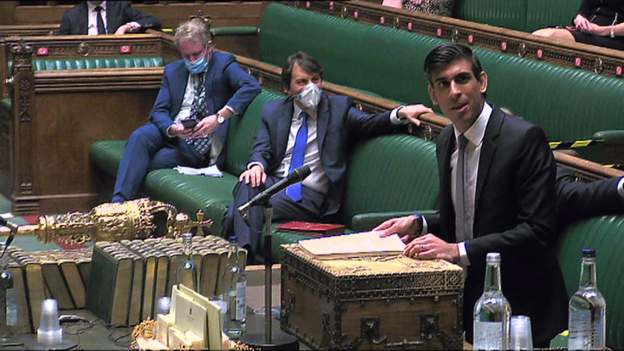
“A year ago, in my first Budget, I announced our initial response to coronavirus. What was originally thought to be a temporary disruption to our way of life has fundamentally altered it,” Rishi Sunak says.
“People are still being told to stay in their homes; businesses have been ordered to close; thousands of people are in hospital. Much has changed. But one thing has stayed the same. I said I would do whatever it takes; I have done; and I will do.”
“We have announced over £280bn of support, protecting jobs, keeping businesses afloat, helping families get by. Despite this unprecedented response, the damage coronavirus has done to our economy has been acute. Since March, over 700,000 people have lost their jobs. Our economy has shrunk by 10 per cent — the largest fall in over 300 years.
“Our borrowing is the highest it has been outside of wartime. It’s going to take this country – and the whole world — a long time to recover from this extraordinary economic situation. But we will recover.”
12.10 PMQs: Johnson faces questions ahead of Budget
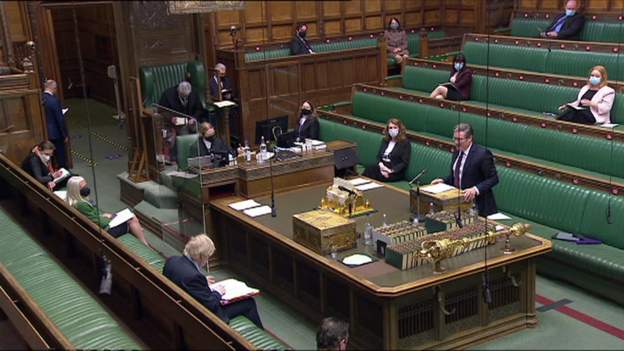
Starmer grills Johnson over Yemen arms sales
Labour leader Sir Keir Starmer is grilling the Prime Minister over whether he agrees with US President Joe Biden that the sale of arms which could be sold for use in the war in Yemen should be banned.
Boris Johnson is insisting the UK has scrupulously followed the rules on arms sales. He adds that Britain is giving £240m to Yemen this year and that the public should be “very, very proud of what we’re doing”.
But Starmer replies: “Just as the US is stepping up, the UK is stepping back”. He asks the Prime Minister if he has “the courage” to put the overseas aid budget cut to a vote in the Commons.
Johnson says the country “we think we have got our priorities right”, noting Sir Keir could have asked about any other topic but he has “concentrated” on Yemen.
12.00 Will Sunak sink a drink?
By tradition, chancellors are allowed to drink alcohol at the Despatch Box while giving the Budget. This includes alcohol, which is otherwise banned under parliamentary rules.
It’s unlikely to tempt teetotal Sunak into enjoying a sherry, though maybe he’ll opt for a swig of his favourite — Mexican Coke — instead.
Dame Eleanor Laing, Conservative MP for Epping Forest and deputy speaker of the Commons, has compiled a list of previous chancellors’ favourite tipples.
11.54 Today’s Cabinet meeting
Here are some pictures from Number 10’s Flickr account showing this morning’s Cabinet meeting, where Rishi Sunak briefed colleagues on the Budget. Most Cabinet members joined via Zoom, though the Prime Minister was seen waving a fist at one point — a sign of good news to come?
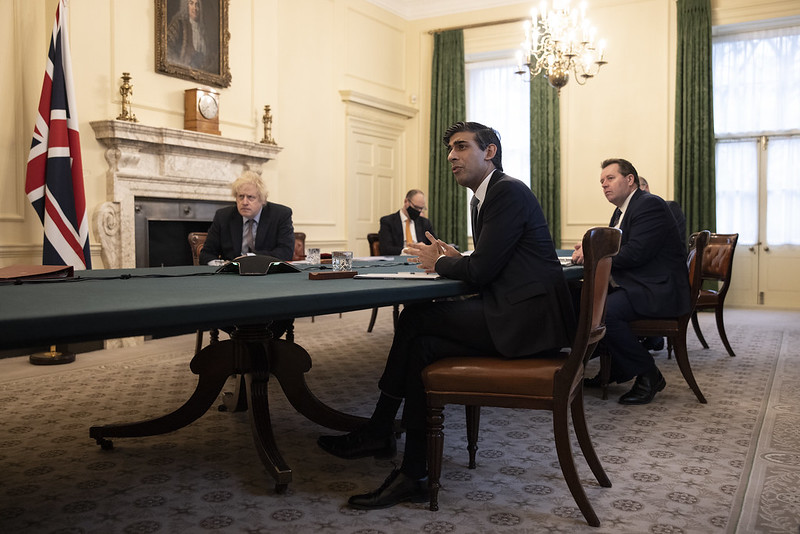
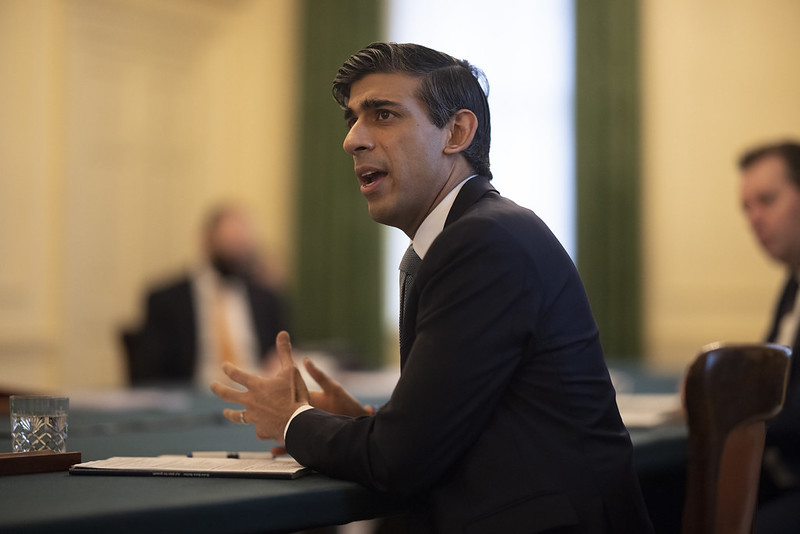
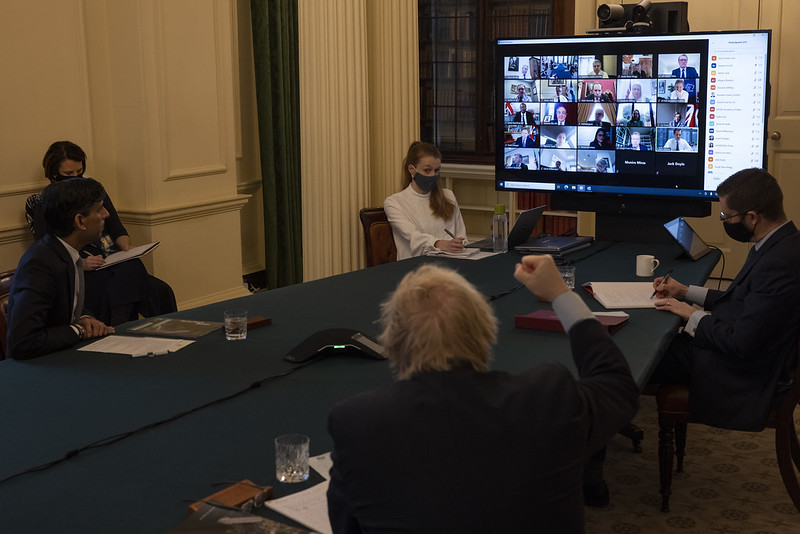
11.35 New northern Treasury campus to be in Darlington
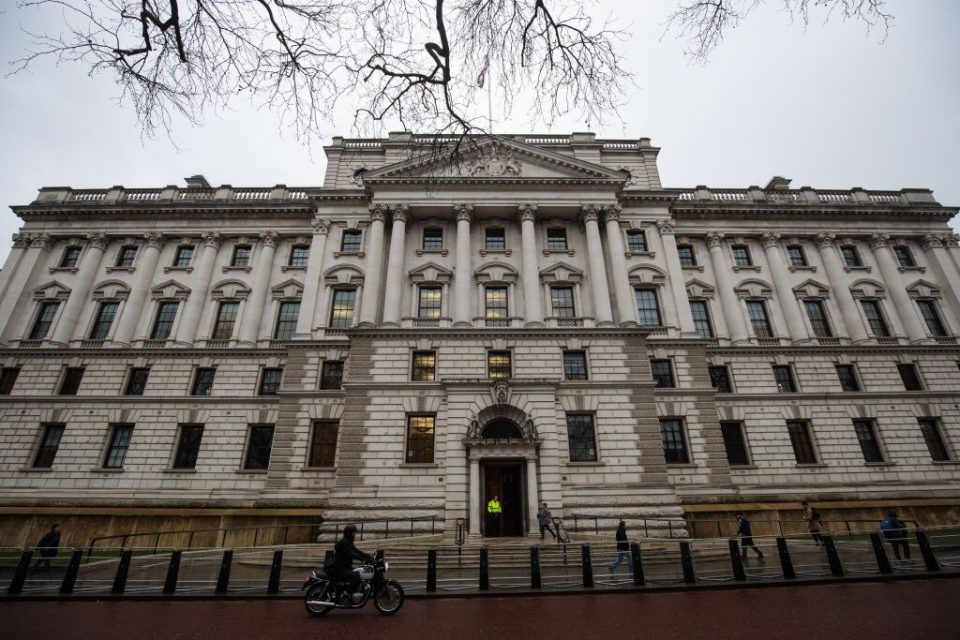
Rishi Sunak is expected to announce that the Treasury’s northern campus will be located in the County Durham town of Darlington.
The move will see the Treasury base 750 members of staff in Darlington, after the town beat out competition from Leeds and Newcastle.
A video, originally sent to Treasury staff, of Sunak announcing the Darlington decision has been circulating social media.
The chancellor said he was “really excited” about the move.
11.30 Four key issues for Rishi Sunak today
The main takeaway for this Budget may be that Covid-19 is set to linger for quite some time, said City-based James Smith, developed markets economist at ING Think, part of the Dutch banking group ING.
“It will probably take until late June or July at the earliest for all adults to receive their first dose, assuming supply capacity can increase to accommodate both first and second doses,” he told City A.M. this morning.
11.20 Where to watch Sunak’s Budget announcement
You can watch the Budget live here at 12.30pm, after this afternoon’s Prime Minister’s Questions
10.52 Contactless payment limit lifted to £100
Budget policy release klaxon!
The Treasury has said that Sunak will today announce that the contactless payment limit will be lifted from £45 to £100 to help aid the ailing retail sector.
The limit has been lifted on the advice of the Financial Conduct Authority (FCA).
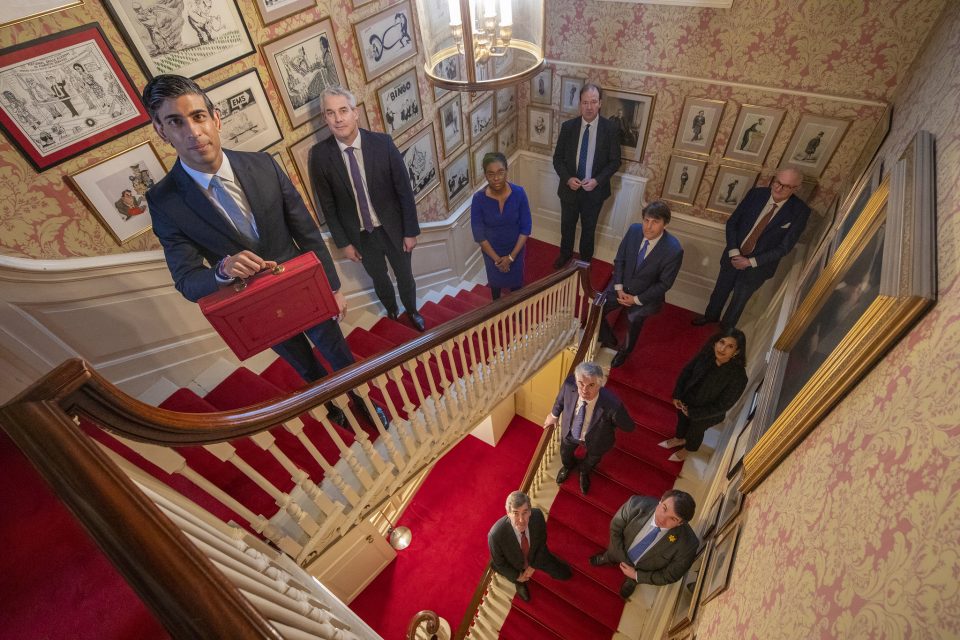
“As we begin to open the UK economy and people return to the high street, the contactless limit increase will make it easier than ever before for people to pay for their shopping, providing a welcome boost to retail that will protect jobs and drive growth across the capital,” Sunak said.
10.45 Focus on reform, Sunak urged by influential think-tank
Thomas Pope, Senior Economist at the Institute for Government, reckons reform – not tax hikes – should be on the Chancellor’s agenda today. Here’s what he told City A.M. earlier today:
“Almost all economists agree: the middle of a crisis is a bad time to raise taxes. Yet the combination of long-term economic damage from Covid-19, higher demand for public spending from the public to make public services more resilient in future, and the ongoing pressures of an ageing population all point towards tax rises being necessary at some point in the next few years.
“If and when he does come to raise taxes, the chancellor should try to achieve tax reform, improving on the many weaknesses in our existing tax system (for example the different tax treatment of the self-employed and employees) rather than simply raising rates or complicating the system further. But these reforms have proved difficult to achieve in the past because they have not proved popular.
“The chancellor should use the budget to make the case for tax rises in future, pointing out the problems with our current tax system and the need for higher taxation to pay for the public services we want. This would be a welcome dose of honesty and would help to sell those reforms in future. However, even though the politics might point towards earlier tax rises, the economics is clear: tax rises should wait until the recovery is secured.“
10.15 Furlough extension a life-saver but not enough, analysts say
The extension of the furlough scheme will swoop in to save sectors and jobs across the UK, but analysts have urged the government to go further.
Rishi’s choices: The taxes that may define this year’s Budget
When asked about specific tax rises, the chancellor refused to comment on what policy levers he would pull. So which taxes may define today’s Budget?
9.50 Influential pro-2010s austerity economist calls for more government spending in 2021
Former chief economist at the International Monetary Fund (IMF) and one of the most influential cheerleaders for austerity in the 2010s has told Rishi Sunak to keep spending in the short-term to get out of the current economic crisis.
Economist Kenneth Rogoff told the BBC today that the current economic crisis was the worst of his lifetime and the worst since the Great Depression.
Rogoff said he had spoken to Sunak once during the crisis and that the UK was still in “wartime mode”.
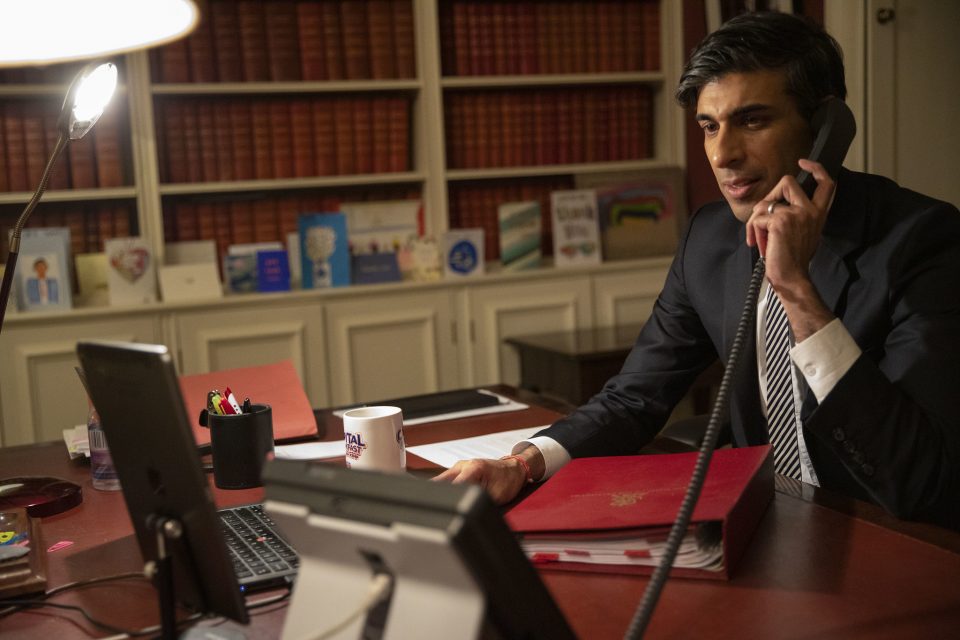
“We’ve spoken once and at the time, and I would still say it now, I said we’re in the middle of war, you should not be worrying excessively about the budget deficit and about debt – you can worry about that on the other side,” he said.
“We’re looking at catastrophe really and we really need to be cautious about scaling back the government action which is very much needed now.”
He said that in the long-term some Budget consolidation would be needed, but that having mammoth Budget deficits in the short-term will not necessarily lead to economic problems.
“When you have very high debt above 90 per cent then compared to every situation below 90 per cent your growth is somewhat lower, but think of it like cholesterol level when your cholesterol level goes from 99 to 201 – it doesn’t mean you’re going to have a heat attack the next day,” he said.
“But of course it’s not desirable to have debt, of course it’s going to waste on future growth, but compared to what’s going on now and the foreseeable future that’s much worse.”
He added: “If you talk about how you reduce inequality in the longer term, you have to raise taxes.
“You have to have a sustainable way of paying for it. I think it’s naive to think we can keep running budget deficits forever to deal with inequality.”
9.31 J.P. Morgan AM strategist: The UK is on track for an upside scenario
“I believe we are on track for the upside scenario which, even without further tightening measures, has net debt falling meaningfully over the forecast horizon,” according to Karen Ward, chief market strategist EMEA at J.P. Morgan Asset Management.
Pre-Budget opinion – Rishi Sunak must take his time balancing the books or risk punishing those hardest hit by Covid
Tackling UK borrowing and debt levels may need to be part of the equation, but this should be timed and targeted appropriately, argues Allie Renison, head of EU & Trade Policy at the Institute of Directors.
9.27 FTSE 100 rises at open as markets await Sunak’s Budget
The FTSE 100 opened higher this morning ahead of today’s Budget, as traders wait to see what further help chancellor Rishi Sunak will provide for the economy.
London’s blue chip index jumped 1.1 per cent at the open, rising to 6,688 points, while the FTSE 250 rose 0.9 per cent.
9.10 Labour calls for more targeted furlough scheme
Shadow chief secretary Bridget Phillipson has called for alterations to the furlough scheme to make it more targeted to certain sectors.
The Treasury announced last night the scheme would be extended until September at a potential cost of £60bn.
Phillipson said the chancellor should have added a “training element to run alongside it”, along with other adjustments.
“We also want to see furlough used for better effect – target in areas where it’s most needed, not where it’s needed less,” she told the BBC.
9.04 IFS chief says tax rises ‘inevitable’
Tax rises are inevitable and the UK will be paying off its Covid-19 debts for decades, according to the boss of one of the UK’s top economic think tanks.
Paul Johnson, director of the Institute for Fiscal Studies (IFS), compared the UK’s £300bn Covid spend to the country’s World War II bill.
This is debt that will remain high for a long period just as it did after World War II
IFS director Paul Johnson just now
“We had vastly inflated debt and that came down relatively quickly because the economy grew quite fast in those decades.”
He added: “I do think that some form of tax rises are pretty much inevitable – there’s obviously huge amount of choice about how you do it.”
8.50 Nicky Morgan says don’t expect much tax detail today
Former Boris Johnson cabinet secretary Baroness Nicky Morgan has said people should not expect much hard detail on future tax rises in today’s Budget.
Morgan told TalkRadio that Sunak will be more likely to lay out a series of tax reviews and potential scenarios than definite plans.
I think we’ll see Rishi setting out a direction of travel if you like, a path he thinks might happen toward repairing the public finances
Baroness Nicky Morgan this morning
“We might hear one or two suggestions that tax rates that aren’t going to fall or are lifted at some point, but I’ll be very surprised if we hear much detail on that today.
“We know there’s more tax consultations to come.
“I suspect we’ll have another budget or pretty significant financial statement in the autumn when we’ll have a better senses of whether the economy has bounced back and I think it will bounce back when the restrictions are lifted.”
Start Budget Day with this…
Spac revolution set to unlock Big Bang 2.0 for the City of London
The UK is set to spark a second Big Bang for the City post-Brexit, with a landmark government report calling for regulators to allow Spacs to list in London and ease a range of share listing restrictions.
CONFIRMED: Furlough scheme extended to September in Rishi Sunak’s Budget
The UK’s furlough scheme will be extended until September, ensuring the government will pay millions of people’s wages past when Covid restrictions are set to end.
I would like to keep taxes low for people… but I want to deliver our promises to the British people that we will be responsible with their money.”
Rishi Sunak last weekend
The long view – Could the political consensus on low taxes be completely wrong?
Higher taxes can slash massive public sector deficits with no harm to the economy. But there is a big proviso, warns Volterra Partners economist Paul Ormerod this morning.
Pre-Budget opinion – Are tax hikes the same as austerity and will they spell Rishi Sunak’s downfall?
Matthew Lesh, head of research at the Adam Smith Institute, argues that slick social media graphics will not be able to hide less money in people’s pockets, higher unemployment and miserably slow growth.
Anybody who says that the challenge can be met only by increases in taxation, or only by cuts in public spending is not being straight with people.
Former chancellor Philip Hammond yesterday
Should Sunak simplify? The UK should axe inheritance tax, stamp duty, the TV licence fee and 18 other taxes to simplify the UK’s taxation regime post-Covid, the Institute for Economic Affairs argues ahead of today’s Budget.
You may have missed…
Brand Budget 2021: How Chancellor Rishi Sunak went loco for logos
Riding on a wave of pre-Budget excitement, Rishi Sunak this week dropped a slick five-minute film that would make any marketing team proud. The glossy clip is only the latest example of personal PR from an Instagram-friendly chancellor.
What to expect from Rishi Sunak’s three-point plan
Rishi Sunak has hinted that he will extend a wide range of government support schemes, as he again pledged to do “whatever it takes” to restore the British economy from the impact of the coronavirus crisis.
Philip Hammond tells Boris Johnson to ditch big infrastructure projects
Former chancellor Lord Philip Hammond has told Boris Johnson to ditch his plans for big infrastructure projects in the North, with the UK facing its largest ever Budget deficit.
Sunak to outline post-Brexit regulatory shakeup for the City of London
Rishi Sunak will outline plans to improve the City of London’s post-Brexit competitiveness as he releases a highly anticipated report from the UK’s former EU commissioner for financial services.
Rishi Sunak to unveil £400m boost for culture and arts
The chancellor will pledge £408m for museums, theatres and galleries to help them survive until the end of lockdown.
Sunak to announce £520m scheme to provide training for SMEs
Rishi Sunak will announce a £520m scheme in the Budget to help provide MBA-style management training to up to 130,0000 British small to medium sized enterprises.
